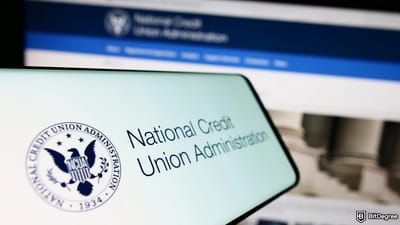Stop overpaying - start transferring money with Ogvio. Sign up, invite friends & grab Rewards now! 🎁
US Senate Proposes Rigorous AML Regulations for Decentralized Finance Protocols
US Senate aims to regulate "anyone who "controls" a DeFi protocol or makes available an application to use the protocol."
The United States Senate is gearing up to introduce a new piece of legislation aimed at regulating the cryptocurrency industry, with a particular focus on the decentralized finance (DeFi) space.
The bill proposed on July 19th by Senator Jack Reed (D-R.I.), a member of the Senate Banking Committee, would impose strict anti-money laundering (AML) requirements on DeFi protocols.

Did you know?
Subscribe - We publish new crypto explainer videos every week!
What is Litecoin? LTC Easily Explained (ANIMATED)


Known as the "Crypto-Asset National Security Enhancement Act of 2023," the bill seeks to bring DeFi protocols under bank-like scrutiny.
Based on the bill description, the legislation's main objective is to combat the increase in crypto-related crimes and hinder potential routes for money laundering and sanctions evasion that pose threats to national security.
DeFi protocols, which are financial applications enabling cryptocurrency transactions like lending, borrowing, and trading through smart contracts, pose a unique challenge to regulators. Unlike centralized entities, like crypto exchange Binance, these protocols operate on permissionless blockchains, making them harder to control.
In response, the proposed legislation aims to regulate "anyone who "controls" a DeFi protocol or makes available an application to use the protocol." This description likely refers to groups that construct user-friendly interfaces for otherwise complex smart contracts. In particular, the legislation reads:
If nobody controls a DeFi protocol, then—as a backstop—anyone who invests more than $25 million in developing the protocol will be responsible for these obligations.
Those considered to be in control of a DeFi protocol would be required to gather customer information, maintain AML programs, report any suspicious activities to government authorities, and prevent individuals on sanctions lists from utilizing their protocol.
Furthermore, the bill intends to impose identity verification requirements on cryptocurrency kiosks. It also seeks to broaden the Treasury Department's power to scrutinize alleged money launderers operating in non-traditional financial environments, including cryptocurrency.




















